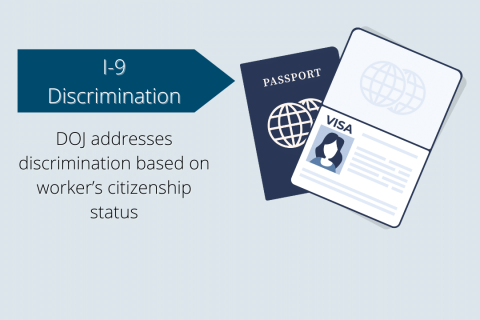DOJ Settles I-9 Immigration Discrimination Case With University

The Department of Justice (DOJ) recently announced that it has settled with a St. Louis-based private university regarding discrimination claims against a worker. According to the case, the company violated the Immigration and Nationality Act (INA) by discriminating against a worker’s citizenship status.
The case revealed how the employer violated the INA when it verified an employee’s permission to work. It also proved that the company retaliated against the worker after he complained about discrimination. According to Kristen Clarke, Assistant Attorney General of the DOJ’s Civil Rights Division,
“Workers who believe that an employer has discriminated against them based on citizenship status have the right to stand up for themselves, including by making internal complaints to the employer, without retaliation. The Justice Department is committed to holding employers accountable for unlawful discrimination and retaliation.”
The DOJ’s investigation began when an individual complained that the employer had discriminated against him due to his citizenship status. According to the complainant, the company repeatedly confronted him about his immigration status, work authorization documents, and right to work. These confrontations repeated despite acknowledging that the complainant had satisfactorily completed the Employment Eligibility Verification (Form I-9).
In the complainant’s correctly filled out Form I-9, he marked his authorization to work as a non-citizen. He also included that it would not expire and provided documentation to prove his authorization. According to the DOJ, the employer knew that the complainant sufficiently complied with I-9 requirements but did not prove his particular status. The DOJ claims the employer retaliated against the worker for complaining about the conduct when it terminated his employment.
The INA makes it illegal to discriminate against an individual based on their citizenship status, immigration status, or national origin. As such, companies cannot discriminate when hiring or firing and cannot retaliate or intimidate individuals over such statuses. The DOJ’s Immigrant and Employee Rights Section enforces this law.
Under the settlement agreement, the university will pay civil penalties of $4,465 to the U.S. government and back pay to the affected worker. The settlement also requires the employer to retrain relevant personnel on the INA’s requirements. The DOJ will monitor and report the company’s progress, ensure it follows all requirements, and have the company revisit its employment policies to comply with the INA.
Unfortunately, many companies have struggled with the I-9 process. Employers can incorporate an electronic I-9 management tool to avoid lawsuits like this. This tool helps ensure compliance by guiding through the process, providing secure digital storage, and incorporating an optional E-Verify integration.
Ensure compliance today by switching to an electronic I-9 management tool with I-9Compliance.